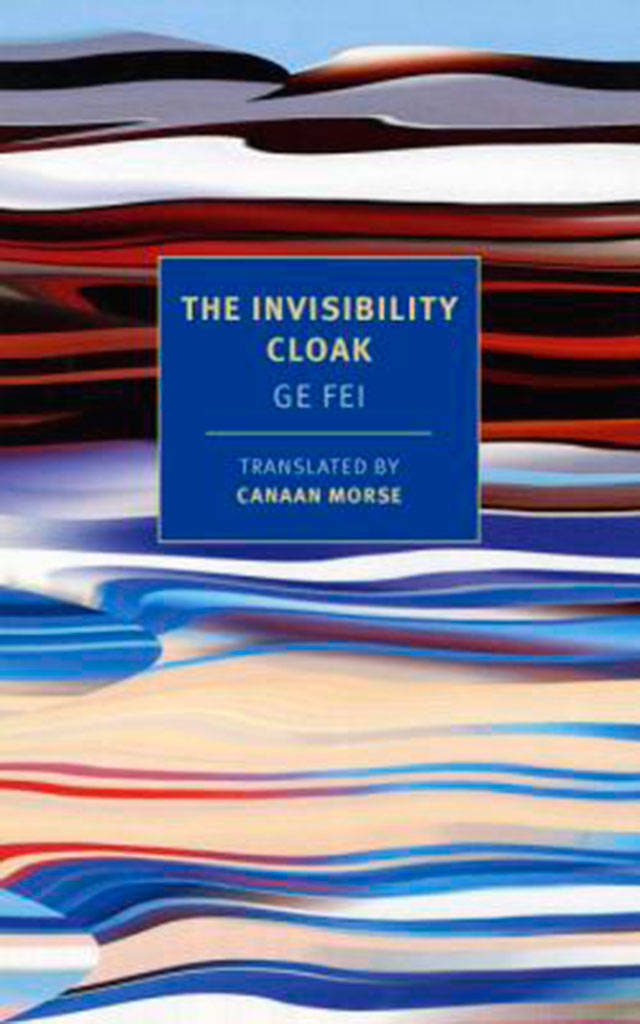By Heartwood, Everett Public Library staff
The Invisibility Cloak, by Ge Fei, gets its hooks into you right away and makes for a quick read. It features Cui, a man in his 40s, who builds elite tube-amp stereo systems for rich audiophiles in China. An old pal of his, Songping, helps him round up clients and mentions a man named Ding Caichen, who could be a big score as he wants to have the “best sound system in the world.” But Songping warns Cui to be careful: Ding, he tells him, has a gaze like ice, runs with the big money, and no one really seems to know who he is.
The early chapters cover Cui’s interest in an attractive woman named Yufen and their eventual marriage and divorce. He ends up living with his sister and her husband until they give him an ultimatum that he must move out. He happens to find a place he could almost afford to buy and remembers that he might stand to make enough money to cinch the deal if he contacted the client Ding. He does this and, based on a verbal contract by phone, agrees to build him a high-end stereo. Cui gives a detailed account of the experience of delivering and installing the sound system, and his impressions of this strange and potentially threatening man. Ding had previously wired Cui one third of the purchase price as an advance, but rather than paying the balance on the day Cui completed its installation, he caught Cui off-guard by saying he’d wire the balance immediately. This doesn’t happen, so more than a month later Cui returns to the house and is greeted by a woman who wears a silk scarf covering every inch of her face. Things get quite interesting from here, but I leave the details for you to discover.
The jacket copy compares Ge Fei with Haruki Murakami — and the easy-to-read, colloquial style, along with the narrator’s interest in classical music (which does not extend, as it does in Murakami’s case, to jazz) makes for a mostly accurate comparison. Fortunately (in my view), Ge Fei doesn’t venture into the supernatural, although there is mention of a powerful man who is said to show up at parties but goes unnoticed because he wears an invisibility cloak (and this man also once owned the Tannoy Autograph speakers that are now part of Ding’s sound system).
The last part of the book moves a good ways toward noir, and presents a puzzle which had me questioning what exactly had happened (this would be interesting to bat around in a book discussion group). Some readers may not appreciate this ambiguity, but I liked being left with lingering questions regarding the ending and how each alternative outcome or interpretation would greatly change what had gone before. Regardless of the true nature and background of Ding and the woman, the reader can adopt the same spirit of optimism Cui shows in the end, where he seems to have found some measure of happiness — even in the face of this unknowing.
Visit the Everett Public Library blog for more reviews and news of all things happening at the library.
Talk to us
> Give us your news tips.
> Send us a letter to the editor.
> More Herald contact information.

























